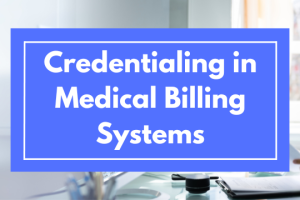Blogging for Private Practice
Blogging is a tool that can be used by several professionals, including chiropractors, to help educate people, share information, provide industry updates and news, and more. Today, it’s an integral part of every business’s content strategy, and it needs to be managed accordingly. The good news is that you’re not forging into new territory here—many have come before you and the best practices are already in place.
To get the most out of your private practice blog, you must know what people want. You also need to keep up with industry news and healthcare updates so that you can be the authority that your practice clients need you to be. With the growing competition in the medical industry today, every little bit helps build your reputation and blogging can be a great asset when you use it well.
Planning Your Content Strategy
The first step in any successful blogging or content strategy is to develop a plan. This will include answering the major questions, like your goals with blogging or how frequently you intend to post content to keep people engaged. Blogging is just one part of your larger content marketing strategy, but it deserves dedicated attention and planning, too. When your strategy is complete, it should cover what content you are creating, how often you’ll create it, and how you will follow up, monitor the results of your content marketing, and other details.
Should You Hire Someone to Blog for You?
It’s easy to assume that anyone can write a blog. While anyone ”can” write blogs, not everyone should. Therefore, it’s worth considering hiring someone to create your blogs. You can even hire someone that can create them and post them to the site for you, allowing you to spend your time with your patients, which is where your focus should be.
It could behoove you to hire someone to create and manage your blog, including adding new posts as needed. You can either have someone give you the content and then you can share it, or you can have them manage things entirely, from ideation to posting, so that you can focus on your patients and the care that they need.
If you do hire someone to handle your blogging or blog posting, make sure that you vet them and ensure they’re experienced in professional content writing. That way, you can guarantee that they are working with both best practices for marketing and the best intentions for your firm in mind.
Five Areas of Focus for Private Practice Blogging
The only way that you will benefit from blogging in private practice is if you choose relevant, timely content that people can use. For example, a blog about slipped discs could be a great resource for chiropractic patients. You could also do a series on the different types of chiropractic treatments you offer based on the different ailments patients present with. There is a lot out there to choose from. To ensure your blogging is on point, focus on topics and areas of interest like:
- Relevant conditions/ailments
- Relevant treatments/therapies
- Industry news and information
- Practice news and updates
- Patient information and education (insurance, medical processes, etc.)
These are just a few ideas to help you get started. You can dive deeper into each of these categories to find an endless supply of blog topics. And if you really want to keep up with the competition, see what they’re posting about and write something better.
Build Reputation and Authority
Practice owners today face one very strong source of opposition: the competition. With an increasingly large market of competitors in the medical field, it’s important that your practice stands out as one of the best. Blogging allows you to do this because you can produce content on a range of topics that will allow you to position yourself and/or your practice as an authority within the industry. This can add serious reputation points with your clients, as well as with Google and other search engines.
Of course, you have to remember that quality counts here. You can’t just create whatever content strikes your fancy or post blogs for the sake of it. As mentioned at the beginning, this is where having a dedicated blogging strategy can help. You can identify your goals for blogging and what kind of topics you want to cover so that you always have something ready to share with your audience. Do your part to offer as much helpful information as you can and if you want to go further than blogs, use those as a segue to your longer whitepapers and/or eBooks that you create. That will definitely maximize your reputation and industry authority.
How Can ClinicMind Software Help?
ClinicMind provides a comprehensive solution for practice management that frees up your time and resources so that you can do more than just run your private practice. The EHR/RCM system features seamless integration of scheduling, billing, and charting, and it’s all cloud-based to guarantee agility and scalability on demand. ClinicMind also offers support for billing services, consultations, and credentialing, along with other services and solutions. Whatever you need to manage your private practice, ClinicMind can help. With a total practice management solution in place, you’ll have more time to focus on blogging, marketing, and other efforts that require your attention.
Conclusion
Understanding how to create and execute an effective blogging strategy is the first step to making the most of blogging for your private practice. If you choose to hire someone to write the content, make sure that they’ve got the right skills and expertise—sometimes, agencies are better than independent contractors. In any case, take advantage of the ways that blogs can improve your authority and reputation, as well as provide information to your patients and keep them engaged with your practice even when they’re not actually there. While you’re reaching out for assistance, contact ClinicMind to find out how their practice management solutions can free up your time for blogging and more.










